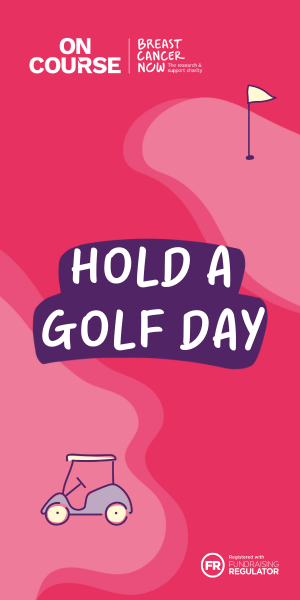Nicola Stroud talks about the importance of golf psychology ahead of her upcoming Women & Golf mental game series
We caught up with Advanced PGA Professional Nicola Stroud to talk about her passion for golf and growing interest in golf psychology. Head Teaching Professional at Burnham & Berrow Golf Club in Somerset, Nicola discusses her holistic approach towards teaching golf to her clients. We find out what this approach entails and why golf psychology is so important for the recreational golfer.
How did you get into golf?
I first got into golf when I was around eight years old. My dad and brother both played, so eventually I was brought along to try junior group coaching. One day, when I was having a lesson, the South Wales Girls Golf Association turned up for an event. They asked me to join in, so - after some persuasion from my dad - I did. It was the best thing I ever did! I just remember that I won a little prize, probably for taking part, but I really enjoyed seeing a group of girls play golf at my club. My group lesson was all boys, so after I realised that other girls played too I wanted to go to the next event at another course.
When did you decide that you would go down the coaching route?
Pretty young actually, probably when I was around 13 years old, I decided I wanted to be either a PE teacher or a golf coach. I was playing age group golf for Wales at the time and we went on a coaching course for a weekend that was taught by a female PGA Professional – Vivien Saunders. That was the first time I had actually met a female PGA Professional. It was an amazing experience and from then on I decided that was what I wanted to do. I did actually gain a scholarship for a University in America but decided against it for a few reasons and eventually ended up on the very first intake of the PGA degree.
What do you love most about golf?
Golf is such a sociable game and I love that you can play with anyone, regardless of age or gender, and have an amazing time - I can play with my husband, my mum and my nephew all at the same time which is fantastic! No two golf holes are the same and golf always throws new challenges at you, which keeps the game interesting. Also, being outdoors and doing gentle exercise at the same time is great too.
What is the Tee2Green programme?
The Tee2Green programme is a month-to-month personalised development plan that isn’t just about working on your golf swing, but everything in between. I like the holistic approach to golf coaching. That means to improve your golf you need to work on your entire game, including the physical and mental. We look at everything from the time you tee off to the ball going in the hole on the final green.
Tell us about love.golf and why women’s only group coaching is so important?
Women often feel more comfortable learning around other women and you find that together they help to inspire and empower each other. love.golf creates a community for women to share their experience and just be themselves.
Burnham and Berrow are Women in Golf Charter signatories – what changes have you seen implemented at the club?
The Women in Golf Charter has definitely had a really positive effect at Burnham & Berrow. The Board of Directors are on board and we now have a Committee led by a couple of very driven women who are pushing through some big changes. It has had an effect at grassroots too, because since lockdown we have seen a boost in juniors and lots of them are girls. There is now a love.golf membership available for women to try the sport out and there are some other policies that are taking the club in a positive forward direction.
Let’s look at golf psychology specifically. Why does this interest you so much?
I knew from a young age I wasn’t going to make it on Tour, because I just didn’t have the mental strength required to take my game to the next level. Golf psychology wasn’t really a thing back then, but throughout my career I began to research it more. The interest started off from a personal perspective, but it has been a natural progression into my golf coaching.
As my coaching career has progressed, the holistic approach has become much more intrinsic. The mental and physical game are so closely connected, but historically golf club professionals have only worked on the technical and physical sides. I think in all sports we are now becoming much more aware of the mental side and my clients are really starting to take it on board as well.
We’re looking forward to hearing more from you on golf psychology over the coming months. When it comes to the mental side of the game, is there one thing that really holds golfers, women in particular, back?
Yes, self-doubt. Doubt is the biggest killer of all golf shots. When you’re on your game everything feels easy, but when you’re not, it’s about being able to ‘fake it ‘til you make it’. Golf psychology is about faking the doubt away until you can get your confidence back.
Is golf psychology incorporated into your coaching or is it something that you work on separately with a client/group?
A bit of both. I do run some separate sessions that are focused around the mental side of the game, but the majority of my coaching is physical and mental taught side-by-side. When I started looking into golf psychology, I quickly realised that I do it in my coaching without even realising.
Can you give us just one hint or tip ahead of your mental game series?
A lot of people get quite emotional on the golf course. That can be excitement over an unexpected eagle or lows over a bad hole. We are going to work on how to keep emotions even, so that you can keep it together during good scores or pull yourself up during bad scores.
We look forward to sharing more insights from Nicola on the mental side of the game over the coming months. In the meantime you can find out more about Nicola by visiting her website here.















